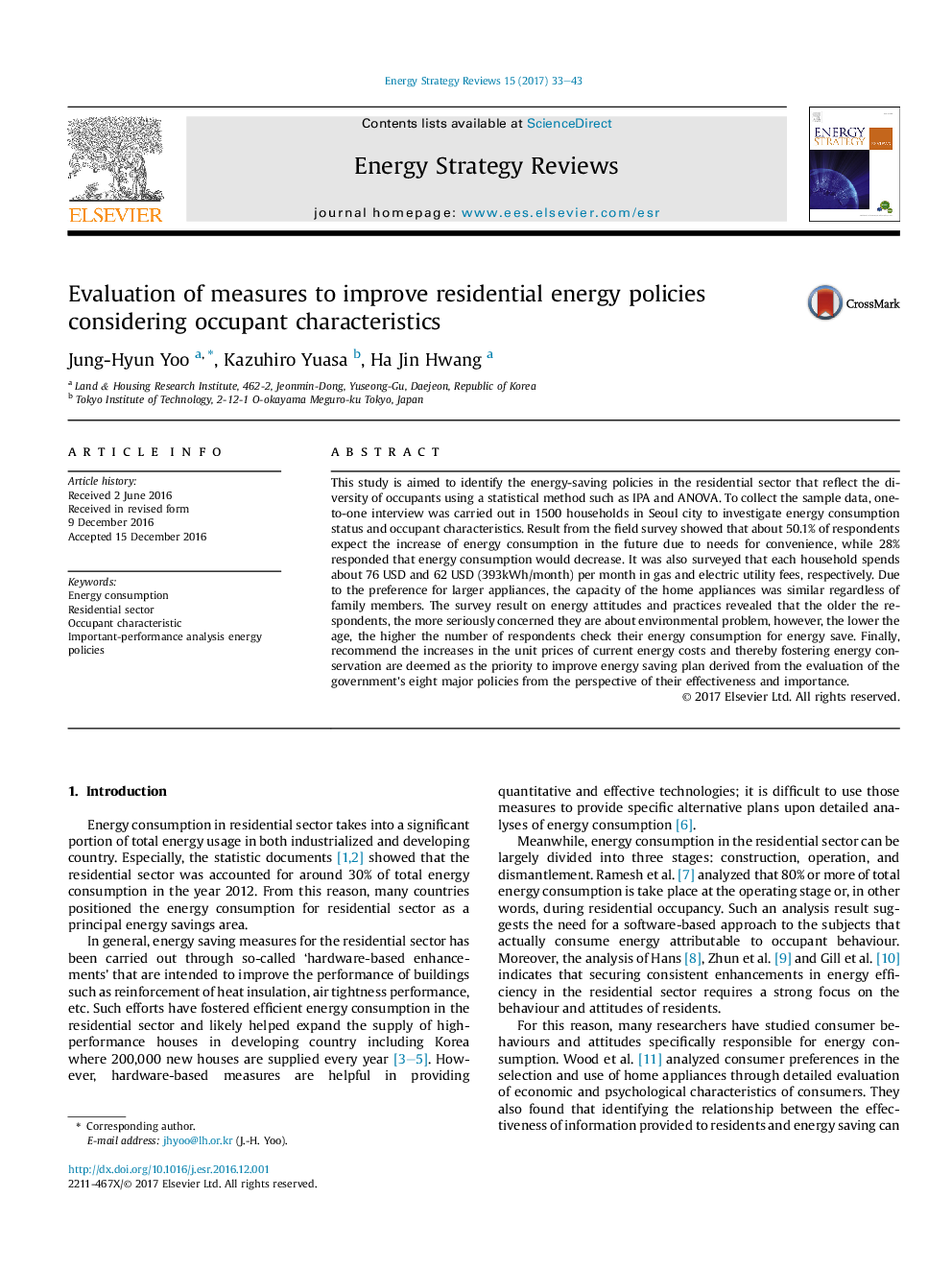| Article ID | Journal | Published Year | Pages | File Type |
|---|---|---|---|---|
| 5111441 | Energy Strategy Reviews | 2017 | 11 Pages |
Abstract
This study is aimed to identify the energy-saving policies in the residential sector that reflect the diversity of occupants using a statistical method such as IPA and ANOVA. To collect the sample data, one-to-one interview was carried out in 1500 households in Seoul city to investigate energy consumption status and occupant characteristics. Result from the field survey showed that about 50.1% of respondents expect the increase of energy consumption in the future due to needs for convenience, while 28% responded that energy consumption would decrease. It was also surveyed that each household spends about 76 USD and 62 USD (393kWh/month) per month in gas and electric utility fees, respectively. Due to the preference for larger appliances, the capacity of the home appliances was similar regardless of family members. The survey result on energy attitudes and practices revealed that the older the respondents, the more seriously concerned they are about environmental problem, however, the lower the age, the higher the number of respondents check their energy consumption for energy save. Finally, recommend the increases in the unit prices of current energy costs and thereby fostering energy conservation are deemed as the priority to improve energy saving plan derived from the evaluation of the government's eight major policies from the perspective of their effectiveness and importance.
Keywords
Related Topics
Physical Sciences and Engineering
Energy
Energy (General)
Authors
Jung-Hyun Yoo, Kazuhiro Yuasa, Ha Jin Hwang,
